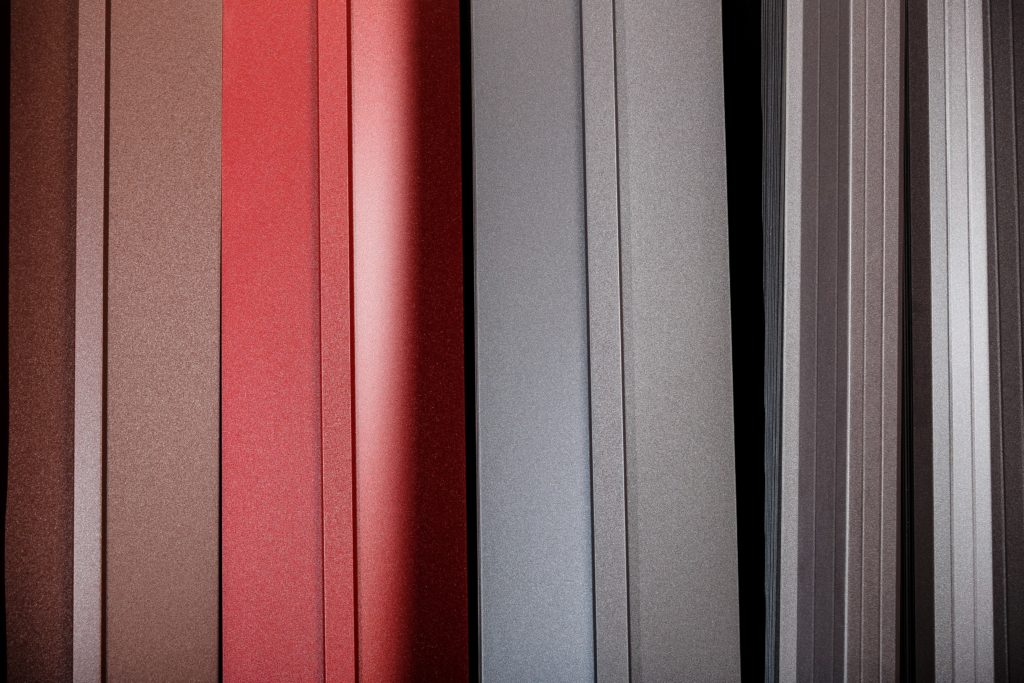If you’re thinking of having a metal roof installed on your property then you may want to give some thought to the financial options that are available, before you go ahead and make your final decision. This can be difficult because there are so many different types of metal roof to choose from, with each one offering a unique set of benefits. If you want to find out more about each of them, or if you need help making your decision then all you have to do is take a look below.
29 Gauge Corrugated Metal Roofing
29 Gauge metal roofing is usually used when constructing barns or similar structures. It’s very common and uses a screw-down system, so it’s easy to install. While it’s not really suited to residential housing, it serves a number of different functions, especially in the agricultural and industrial sector. Farms, outhouses, and barns often make good use of this affordable solution, as it’s durable and it’s also cost-effective. The aesthetic appearance of it may not meet the same standard required by most modern homes however, so this is an important consideration.
R-Panel Roofing
R-panel roofing is a go-to for a lot of commercial and industrial buildings. It uses exposed fastener panels and it is made out of 26-gauge metal. This helps to strike the perfect balance between affordability and durability. It’s very common to see this used on steel buildings because it’s easy to install and very durable. With that being said, fastened panels aren’t the most durable option, as they are vulnerable to issues like water penetration and weathering. For this reason, hidden fastener panels tend to be seen as being the better option for those who need a longer lifespan, or those who need a lot of weather-resistant properties.
26 Gauge Nail Fin Roofing
26 gauge nail fin roofing is a step-up in quality from the options mentioned above. It utilizes a snap-lock system and it is most popular for residential properties. This type of roofing needs to have a wooden support, to ensure that the base is stable. The panels are held in place via pre-punched slots that run along the edges. This connects to the wooden support underneath. Homeowners value this type of roofing because it is clean in its appearance, reliable, and versatile, making it suited to residential and commercial properties across the country.
1-3/4” Snap Lock Metal Roofing
Another popular option would be 1-3/4” snap lock metal roofing. This is highly versatile and most often used in commercial settings, as well as in residential settings. It’s got a clip system for the attachment and this helps to enhance its durability as well as making it suitable for a huge range of applications. It’s particularly popular for its sleek appearance, and it also offers a great deal of protection against the weather. It’s important to know that options like this cannot be installed on open purlins, so you’ll need to make sure that you have a solid substrate.
Mechanically Seamed Metal Roofing
Mechanically seamed metal roofing is known for its watertight capabilities, making it a favorite for applications where drainage is a primary concern. This type of roof involves crimping the seams after the panels have been laid. This helps to guarantee a weather-resistant seal. When you look at the attributes, roofs like this are very popular with commercial or industrial buildings. They are also designed to withstand challenging environments and are often chosen for their durability. Options like this are more labor-intensive when you look at the general installation, but they do offer a lot of reliability when working with low slopes and flat roofs.
Choosing the Right Option for Your Needs
When choosing the right roof for your home, or your property, it’s so important to consider numerous options. Some of them include your budget, the purpose of your building and the local climate. You also need to give thought to the visual aesthetic of the roof. If you are working on a residential project and feel as though you would value style and performance, then it may be worth going for 1-¾” snap lock as your choice. It may also be that 26 gauge nail fin roofing is the best fit. If you are working on a barn or if you need to repair an industrial building then it may be that 29 gauge is the best option. On the other hand, R-panel roofing may provide you with what you’re looking for.
Additionally, you also need to think about the installation requirements of the roof you’re going for. Each type of roof comes with its own installation requirements. Mechanically-seamed systems, even though they are very durable, require professional expertise. They also need professional tools to install them as well, meaning that they have a higher up-front cost. Conversely simple systems like the 29-gauge corrugated roof may be installed with a minimal amount of effort, and at a very low cost. This makes them more suited to projects where budget is a concern.

